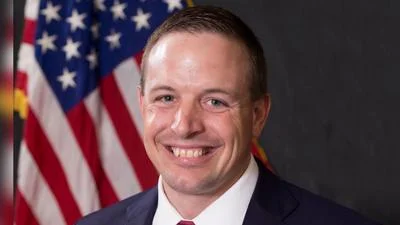Rick Gundrum, Wisconsin State Representative for 58th District | Facebook
Rick Gundrum, Wisconsin State Representative for 58th District | Facebook
According to the Wisconsin State Legislature's official website, the bill was described as follows: "the age at which an infant is covered under the safe haven law".
The following is our breakdown, based on the actual bill text, and may include interpretation to clarify its provisions.
In essence, this bill amends the existing safe haven law in Wisconsin, which allows for the legal surrender of a newborn without the parent facing criminal or civil liability, to extend the age of the infant from 72 hours to 30 days. The bill provides that a law enforcement officer, emergency medical services practitioner, or hospital staff member can take custody of a baby who is 30 days old or younger when a parent relinquishes the child without expressing intent to reclaim them. This change aims to offer parents more time to make the difficult decision while still ensuring the safety and welfare of the infant. The bill does not alter the immunity provided to the relinquishing parent or any assisting person under the law.
The bill was co-authored by Senator Rob Hutton (Republican-5th District), Representative Elijah R. Behnke (Republican-6th District), Representative Lindee Rae Brill (Republican-27th District), Representative Joy L. Goeben (Republican-5th District), and Representative Nate L. Gustafson (Republican-55th District). It was co-sponsored by Senator Rachael Cabral-Guevara (Republican-19th District), along with six other co-sponsors.
Rick Gundrum has co-authored or authored another 90 bills since the beginning of the 2025 session, with none of them being enacted.
Gundrum graduated from the University of Wisconsin-Washington County with an AS and again from the University of Wisconsin-Oshkosh with a BS.
Gundrum, a Republican, was elected to the Wisconsin State Assembly in 2018 to represent the state's 58th Assembly district, replacing previous state representative Bob Gannon.
In Wisconsin, the legislative process starts when a senator, constituent, group, or agency proposes an idea for a bill. After drafting, the bill is introduced, numbered, and referred to a committee for review and public input. If approved, it moves through three readings and votes in both the Senate and Assembly. Once both chambers pass the same version, the bill goes to the governor, who can sign it, veto it, or let it become law without a signature. Only a small share of bills introduced each session ultimately become law. You can learn more about the Wisconsin legislative process here.
| Bill Number | Date Introduced | Short Description |
|---|---|---|
| AB237 | 05/02/2025 | The age at which an infant is covered under the safe haven law |
| AB212 | 04/23/2025 | Registration of out-of-state health care providers to provide telehealth services. (FE) |
| AB200 | 04/15/2025 | Applying the motor vehicle fuel tax supplier’s administrative allowance to diesel fuel, a motor vehicle fuel tax refund for evaporation losses, and making an appropriation. (FE) |
| AB156 | 04/02/2025 | Requiring child sexual abuse prevention education. (FE) |
| AB134 | 03/13/2025 | The effective date of certain provisions contained in 2023 Wisconsin Act 126 |
| AB54 | 02/24/2025 | Utilization management controls for antipsychotic prescription drugs under the Medical Assistance program. (FE) |
| AB12 | 02/06/2025 | State agency status for certain physician assistants and advanced practice nurses who provide services without compensation for local health departments or school districts. (FE) |



 Alerts Sign-up
Alerts Sign-up